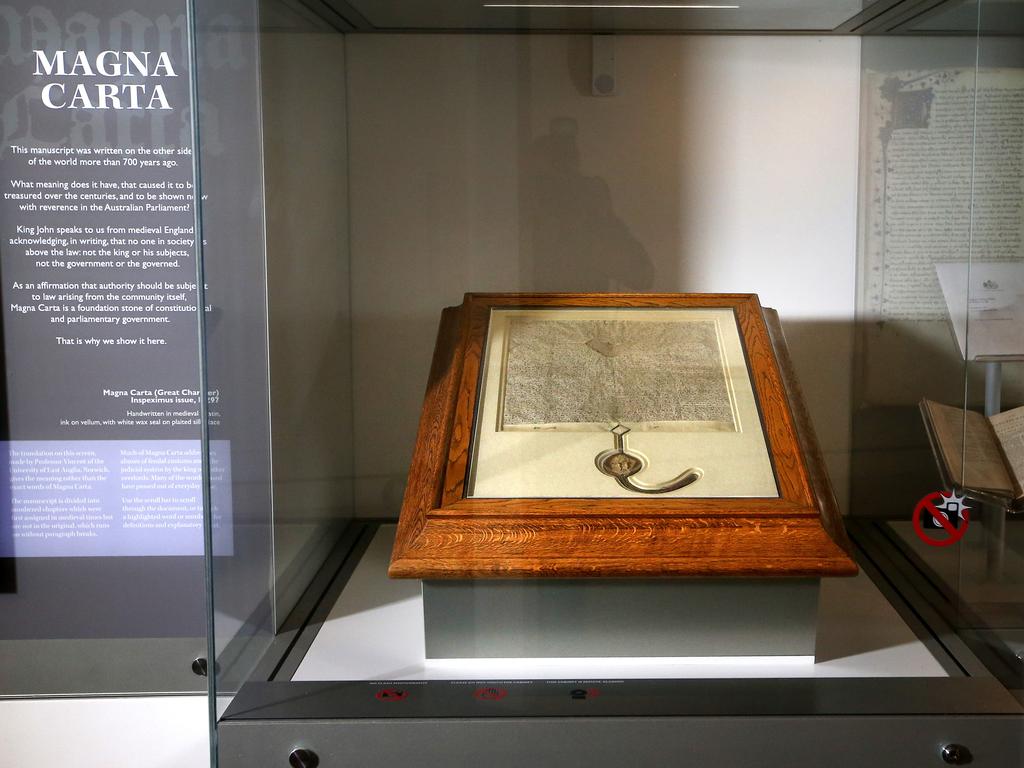The voice referendum is clearly a contender. But there is another horse in this race – the resurrection of the once-abandoned plan for a national charter of rights, based in part on the Victorian charter that proved to be such a disappointment during the pandemic.
Both issues have the potential to fundamentally change Australia – not just how we are governed but how we relate to each other and to our institutions of state.
Whatever the outcome on October 14, the lasting legacy of the voice proposal is already clear: the nation is divided and might stay that way for some time.
National unity is just a memory. There is no longer consensus about the most fundamental aspect of our democracy: the Constitution.
Instead of uniting the nation, the voice proposal has alienated friends, divided families and on polling day is certain to leave about half the country embittered and distrustful.
But while the voice has dominated public discourse, insufficient attention has been given to a federal inquiry that is considering whether parliament should enact a Human Rights Act, which would be the formal title for a federal charter of rights.
This is regrettable because the model under consideration would affect us all and would impose a new and dangerous role upon the judiciary. It deserves a great deal more scrutiny.
This inquiry was commissioned by the Attorney-General, Mark Dreyfus, who has asked the parliamentary joint committee on human rights to undertake a broad review of the nation’s human rights framework.
On March 15, he asked the committee to consider not just whether parliament should enact a Human Rights Act, but to consider a model drawn up by the Australian Human Rights Commission.
One of the most startling aspects of this model is that it would be accompanied by a mechanism that would enable everyone to sue whenever our newly bestowed rights are infringed.
And the remedies for breaches of the proposed charter would include money – something that is not available in those jurisdictions that already have charters of rights: Victoria, Queensland and the ACT.
According to the submission to this inquiry by the Law Council of Australia: “Where a violation of a guaranteed right is established, an effective remedy should be available that affords appropriate and adequate reparation for the wrong suffered.
“This might include compensation in an appropriate case, declaratory or injunctive relief, as well as other remedies.”
This could help mollify those who might otherwise argue that statutory charters of rights, just like their constitutional counterparts, amount to a transfer of policymaking power to the judiciary.
Even if that is initially put to one side, this inquiry will need to come to terms with a more fundamental question: is the model proposed by the Human Rights Commission worth supporting?
Compared to the International Covenant on Civil and Political Rights, it would deliver weaker protection for some of the most important rights set down in that treaty.
The most obvious weakness is the way it treats freedom to manifest religious belief.
There are also problems with the way it treats freedom of expression – which could be convenient for the government given its proposal to crack down on what it considers to be misinformation and disinformation.
Under the ICCPR, the right to manifest religious belief can only be limited if this is necessary to protect public safety, order, health, morals or the rights of others.
But under the commission’s judicially enforceable model, those limited grounds for restricting freedom of religion have been expanded.
It would permit this freedom to be restricted whenever a judge considers a restriction is “reasonable” and “justified in a free and democratic society”.
To help judges reach that decision, the commission wants them to use the same technique of structured proportionality that has been used by the High Court – and has been criticised by some as opening the door to subjectivity.
In 2021, when Amanda Stoker was assistant minister to the attorney-general, she criticised his technique because she said it “takes judges perilously close the role of the legislator” by allowing them “to pick and choose policy prescriptions”.
The bottom line is that if the commission’s model is enacted, freedom to manifest religious belief could be wound back for reasons that extend far beyond the limited grounds outlined in the ICCPR.
The same problem is apparent with freedom of expression.
Article 19 of the ICCPR protects this freedom and says it can only be restricted if this is necessary in order to respect the rights and reputations of others or to protect national security, public order or public heath.
But the commission’s model expands these tight requirements.
It would permit freedom of expression to be restricted on the same broad grounds and using the same contentious mechanism with which it wants judges to set the limits on freedom of religion.
This might appeal to some members of parliament because it would permit them to avoid taking responsibility for difficult public policy issues.
But while those decisions would move from parliament to the judiciary, they would remain, in essence, political. That would inevitably erode the public standing of the judiciary as impartial decision-makers.
If these were the only problems with the commission’s model, it would be worth reconsidering.
But the model proposed by the commission would require judges to use structured proportionality when setting the limits on most of the rights listed for its proposed federal charter of rights.
Chris Merritt is vice-president of the Rule of Law Institute of Australia








With the benefit of hindsight, future generations might be best equipped to nominate the most fundamental change to the nation in modern times.